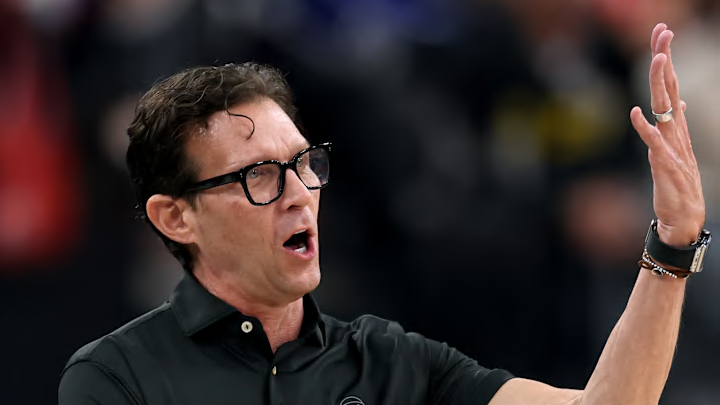Quin Snyder's 2025-2026 Hawks squad haven't had the most promising start.
Managing to pull into game 11 with a 5-5 record, Atlanta hasn't lived up to the lofty expectations that were once fluttering around the rarified air of the organization to begin the year. Talks of playoff contention in a diminished Eastern Conference have all but dried up, leaving the Hawks barely afloat in play-in talks, as usual.
The root of Atlanta's problems can be tracked to one key issue: rebounding.
On both ends of the floor, the Hawks haven't been able to keep up with their competition on the glass. Offensively, they're 24th leaguewide in OREB%, at a mere 27.8%. Defensively, it isn't better - a 65.3% DREB% falls well short of most teams at 28th overall. In total, their DREB% is second to last in the entire league at a dismal 47.1%, only besting the Brooklyn Nets.
The irony of Atlanta's rebounding failure (and the bystander effect on the glass)
The categorical irony of the Hawks' failing to pull down rebounds? How physically towering the team looked to be going into the season.
Headlined by trading for 7'3 Kristaps Porzingis - but in no small part also drafting 6'10 Asa Newell, signing 6'5 with a 7'0 wingspan Nickeil Alexander-Walker, and fostering the rise of the emerging 6'11 titan Mouhamed Gueye - the Hawks were thought to be a force to be reckoned with on the boards.
Perhaps these expectations are exactly where Atlanta began to become complacent - while rebounding is no doubt influenced by physical abilities (e.g., height, wingspan, and vertical), it's perhaps even more a facet of heart.
At the end of the day, the player who wants it the most often pulls down the rebound. Perhaps Atlanta came into the season with the expectation that they were bigger, longer, bouncier - and that's exactly why they haven't played up to par on the glass. When you're playing alongside four other solid rebounders, the individual desire to box out and grab a board isn't as significant.
To compare it to a real-world phenomenon, think of the bystander effect. When you're walking along a crowded street filled with hundreds of bustling folks, the innate need to help one person out is diminished, due to the belief that someone else will help. So too might the Hawks be experiencing a 'rebounding bystander effect.'
Whatever the case may be, this troubling trend needs to be reversed, and fast - if Atlanta can't at least remain above water during Trae's extended absence, the long and winding road to a coveted playoff spot looks more treacherous than ever imagined.
